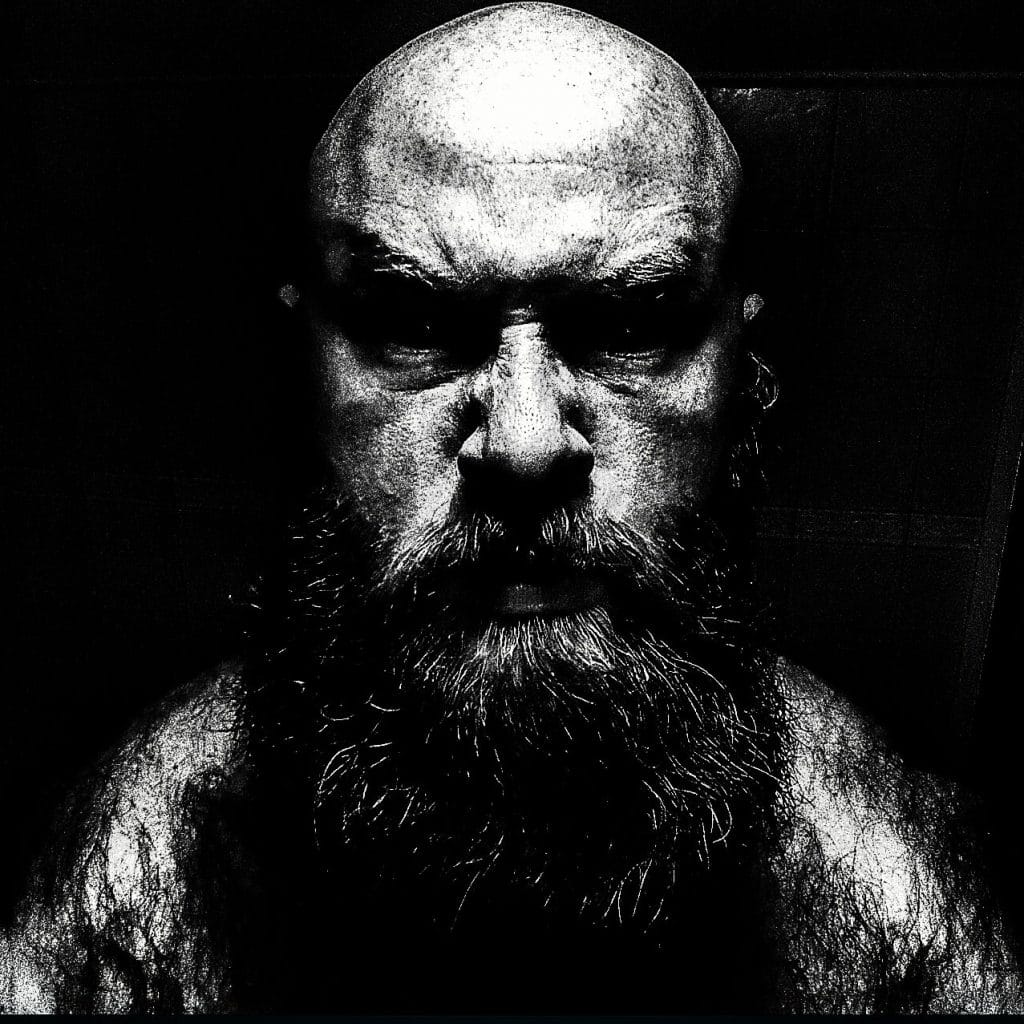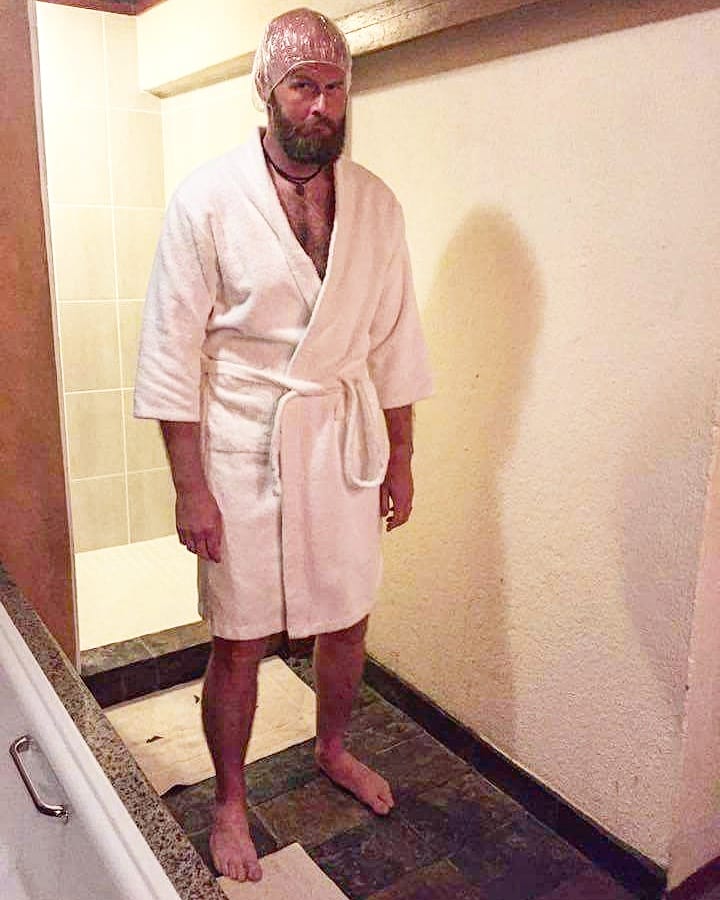I was born in 1975 and am still not dead. When I’m not sleeping, eating, teaching, fighting or seeing my girlfriend or my kids, I like to read weird books. Science fiction, esotericism, popular science, the obscure and arcane, general weirdness with hooks and jaw muscles that lock up and bleed you dry. Through the years I’ve been paid money to do different things, like selling people books, screaming at men dressed in camouflage, calling people named Chris (Wherever you need to call an office, ask for Chris. He knows EVERYTHING. Debt collection was no different. I’ve spoken to literally hundreds of people called Chris.) and trying to make kids believe in their ability to master the Oxford comma. I’m Ben. Hi.

I’ve been favourably likened to a crazed berserker, which is plainly a load of dingo’s kidneys. I do yoga and read books. I got hooked on science fiction in grade school, when one of my oldest and dearest friends and I would check out as many anthologies from the library as we could, and then spent afternoons throwing those books back and forth between each our sofa. The floor was lava. The books smelled like vanilla. Our minds reeled. He is a professor of organic chemistry today. I am a schoolteacher. Back then, we dreamed of travelling to distant worlds, building generational spaceships, breaking the lightspeed barrier, watching the event horizon of a black hole, time paradoxes, artificial intelligences, alien species, quantum physics and escaping a world’s gravity well by use of nanotube space elevators. We were ten.
Aged 15, I was given “The Hitchhiker’s Guide to the Galaxy” by Douglas Adams and laughed for a month. My mother would tell me she could hear me laughing through the wall and I had to go to school the next day, bright-eyed and bushy-tailed, or so help me. Twelve years later I wrote my Master’s dissertation on the canonicity of that book series, and I still can’t decide if it was a really clever piece of work or I was trying to shout louder than Adams’ detractors. Even his biographers insisted his works were nothing but light entertainment.

There’s a certain sensitivity to the hilarity of the almost irrationally grotesque that I’ve only found within the works of some very few authors, such as Adams, Iain Banks, Alfred Bester and of course Neal Asher. Too often, science fiction could become too drawn-out, too senselessly descriptive. As all the purists know, be they on the space opera or hard sci-fi side of the fence, the truly great science fiction is about humanity. And when you get right down to it, the history of humanity is a kaleidoscope of grisly, seemingly unbounded brutality, walking hand in hand with a very inappropriate sense of humour.
When I was little, my mother gave me a piece of advice that I never forgot. “You can do two things about life. You can laugh, or you can cry. Your choice.” Where I think Asher stood out from all the science fiction I voraciously consumed through my adult years was in how it transfixed me like a deer caught in a truck’s headlights, insecure about its future as a hood ornament. I had bought “The Gabble”. I had no clue.

For those of you not in the know (Shame on you. Seriously.), the Gabbleduck is an enigmatic, pyramidal life form that is arguably sentient, seemingly indifferent to other life forms and speaks in weird vocalizations that never. Ever. Repeat. It baffled me. There was an almost Lovecraftian horror to the Gabbleduck. It spoke of hidden horrors, a race that had collectively lobotomized themselves in an ancient conflict, for possibly draconian reasons. It was hilariously funny and mind-numbingly dreadful at the same time. It was like discovering that your kindly grandfather kept the livers of dead men in neatly labeled glass jars in a hidden room in his basement, and he invited you to inspect and admire his collection as he regaled you with the curious stories of how they ended up in his care, laughing with fondness and a twinkle in his eye. It was all for the glory of the Dread Voice from the Beyond. And here is my collection of rare, vintage toothpicks.
Needless to say, I read every single book I came across by Asher. I laughed. I was nauseated. I was intrigued. Sometimes I tasted that painful ache of existential angst that sometimes spills out, and curiously, on those occasions I’ve felt reassured as if by Neal’s own hand reaching out, telling me it’s OK. And it was better than OK. Even in an uncaring, senselessly brutal and frequently hilarious universe, it’s better to laugh than to cry. Shakespeare’s oft-quoted passage about life being a tale told by an idiot, full of sound and fury, signifying nothing is definitely not valid here.

On a related note, Shakespeare had so-called “trouble plays”, which defied categorization as either tragedy or comedy, somehow synergistically managing to create better comedy AND better tragedy at the same time. I like to think that Asher does something very similar in creating stories that straddle the gap between poignant tragedy and side-splitting comedy while still managing to keep their metaphorical trousers from splitting.
Keep writing books, please. I need them.